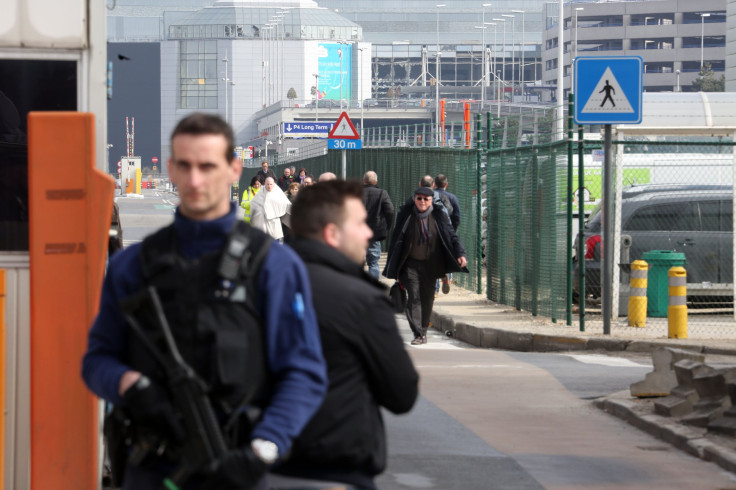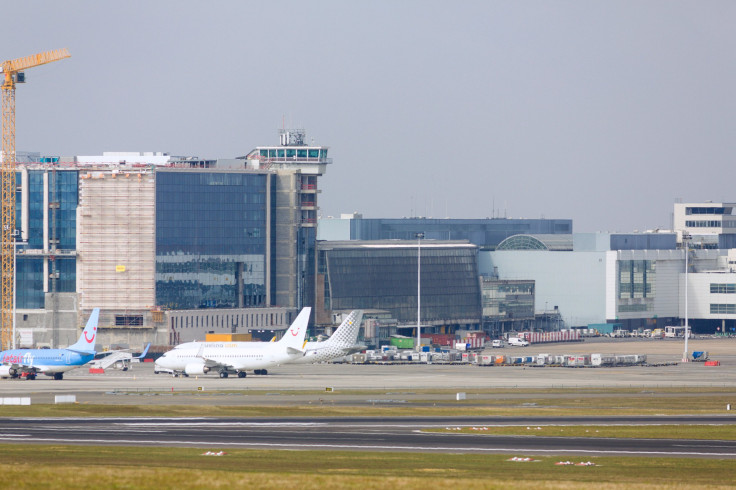Are Airports Safe? Brussels Attack Marks A Rarity For An Aviation Hub Post 9/11

In the wake of deadly terrorist attacks that rocked Brussels Tuesday, killing at least 30 and wounding scores more, airports beefed up security around the world. The airport explosion at Brussels’ Zaventem airport was a rarity and marked only the third terrorist attack against an aviation hub in the past decade, according to Bloomberg.
The explosions that tore through Brussels’ airport and a subway station in the Maelbeek district were said to be caused by a suicide bomber. As a result, the city bumped its terror threat level up to four and closed the metro system airport. Airports in Paris, London, Prague, Amsterdam and Vienna — as well as in Egypt and Greece — stepped up security efforts; and in Moscow, Russian Transport Minister Maxim Sokolov reportedly told Russian news agencies that authorities will “re-evaluate security” at Russian airports.
Many major airports in the United States also ramped up security protocols Tuesday after the explosions. The Port Authority Police Department bumped up its security at the three major airports in the New York City area.

“The PAPD is stepping up security at its three major airports, the bridges and tunnels and Port Authority Bus Terminal and also is employing high-visibility anti-terrorist patrols on the PATH system and at the WTC site,” said Scott Ladd from Port Authority’s media relations. “As a precaution, PAPD will conduct additional bag checks at PATH stations.”
The Metro Transit Police in Washington, D.C., stated that it will be deploying additional patrols and conducting more security sweeps. The New York Police Department and the Los Angeles Airport Police both also reportedly said that they beefed up the visible presence of officers in their respective cities. After the grisly terrorist attacks rocked Paris in November, cities across the United States had a similar response. Precautions were taken, patrols stepped up their presence in high-visibility locations and threats were closely monitored.
While commuters might be fearful to fly after Tuesday's explosion, attacks on airports in the past decade have actually been fairly limited. The terrorist attack on Brussels’ airport marked only the third attack against an aviation hub in the last 10 years. Tuesday's attack resulted in the most deaths in an airport attack since 2014, when the Pakistani Taliban attacked an aircraft maintenance facility next to Karachi’s Jinnah International terminal, killing 26 workers. The blast Tuesday in Brussels mirrored in some ways a suicide bombing at Moscow’s Domodedovo airport in 2011 that resulted in 37 deaths, according to Bloomberg.
The security crackdown that occurred after 9/11 has made attacks against airports a rarity. Months after the 2001 attacks, agents with the U.S. Transportation Security Administration began speaking individually with passengers more frequently, asking about their destinations and the purpose of their travel to gauge unusual reactions, according to the New York Times. Other post-9/11 security measures in the U.S. included requirements that all liquid containers in carry-on bags be contained in one quart-sized bag, the removal of shoes when being screened and full-body scanners.
© Copyright IBTimes 2025. All rights reserved.






















